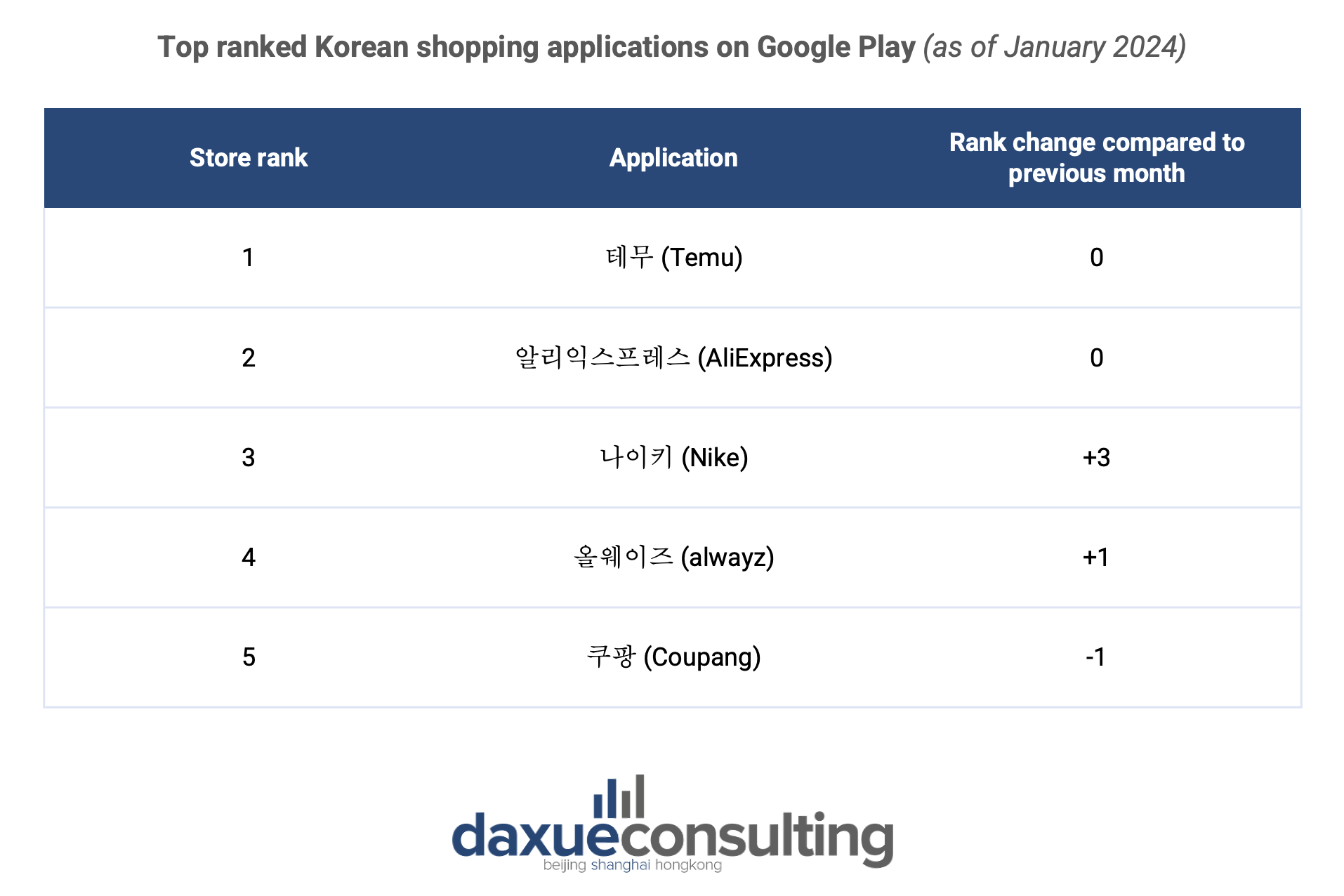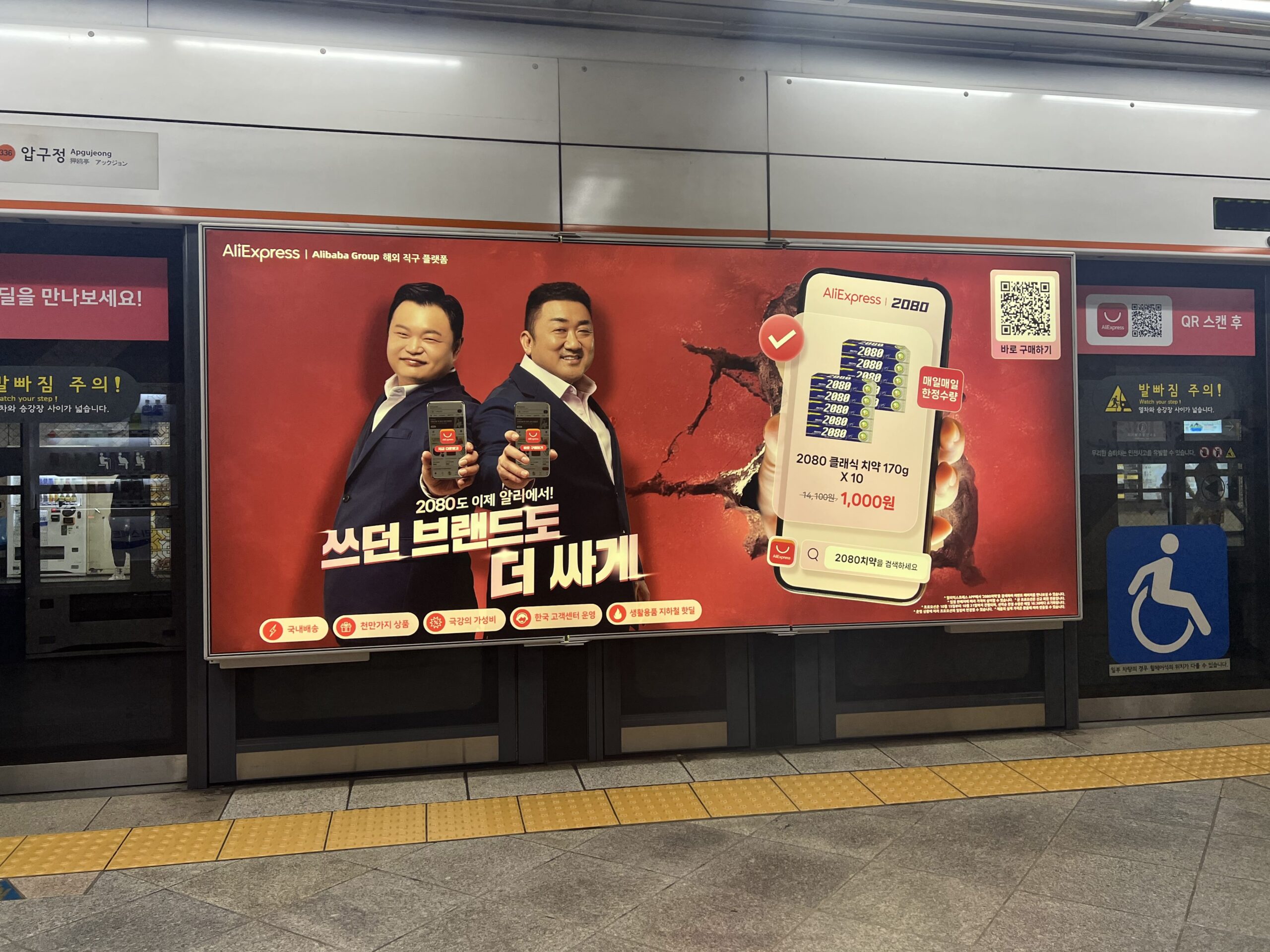South Korea stands tall among the top ten e-commerce markets in the world. Joining this dynamic landscape are AliExpress and Temu, relatively new e-commerce entities stemming from Alibaba Group Holding and Pinduoduo (PPD), respectively—two of China’s largest e-commerce companies. These platforms aggregate small businesses in China, providing them with opportunities to reach international e-commerce markets directly.
Read our Korea’s MZ Generation report

Having entered the South Korean market, AliExpress and Temu have attracted significant attention with their low pricing strategy and extensive product range, putting pressure on local companies. However, despite their successes, AliExpress and Temu in South Korea still encounter challenges, such as delivery issues, raising questions about their long-term success.
Fresh faces in South Korea: Temu and AliExpress
AliExpress has established itself as one of the top 50 most visited sites globally, while in contrast, Temu, while rapidly growing, is a relatively newer player in the global e-commerce landscape. Specifically in South Korea, AliExpress has been able to command a much larger market share in comparison to Temu.
However, both AliExpress and Temu were able to connect Chinese brands to a South Korean consumer base in an incredibly short amount of time. Consequently, they grew into one of the most popular apps in the Korean market. AliExpress, which entered South Korea in 2018, has approximately 7 million users as of November 2023. Temu followed it later in July 2023 and has 3.5 million monthly active users despite its comparatively recent entrance. This has also shaped their commission structure. Since they have a firmer hold on this market, AliExpress charges a 5% commission, whereas Temu allows businesses and merchants to operate for free to facilitate transactions and more interest to merchandise.

Aggressive advertising: Low pricing strategy and myriad of products
AliExpress and Temu in Korea have rapidly garnered significant attention due to their competitive prices and extensive product selection of more than 100 million items. Despite facing counterfeit allegations, they have managed to appeal to Korean consumers by offering ultra-low prices and products similar to those available on domestic platforms such as 11Street and Coupang. This similarity facilitates their rapid growth, as domestic consumers are attracted to the low prices for what they perceive as the “same product.” Sometimes, there is more than KRW 10,000 difference between prices of products, which coupled with free shipping, allure customers to these new companies and products.
Known for their aggressive advertising and remarkably low prices, sometimes offering gadgets for as little as USD 1, AliExpress and Temu excel in encouraging impulse purchases among consumers. They target the MZ Generation with these offers, typically backed by marketing support from their parent company to facilitate growth amidst absorbing losses.
Consequently, they have begun to pressure well-established local e-commerce platforms in Korea such as Coupang and Gmarket. While these local platforms may not offer prices as low as theirs, they are reputable for fast checkouts and next-day deliveries. They even provide same-day delivery for customers in South Korea, adding to the convenience of purchasing groceries and other daily essentials.

The shipping dilemma: Delivery issues with AliExpress and Temu in South Korea
AliExpress and Temu suffers challenges revolving around the prolonged delivery times. Users of the app have criticized shipping times, which typically range from six to twenty days. This stands in contrast to Korean e-commerce giants like Coupang, which offer their signature Rocket Delivery Service. Customers are able to order on Coupang’s websites and applications and get their cart delivered to their door by the next day, guaranteed to be fresh. They even have Dawn and same day delivery that guarantees even faster shipping. To address delivery issues, AliExpress and Temu have been tackling this hurdle through collaboration with local logistics company CJ Logistics Corp, ensuring a three-day delivery triumph with AliExpress Choice. While they have been trying to do so, it remains a problem to be solved. While efforts have been made to tackle this hurdle, it remains an ongoing challenge to be resolved.
Countering counterfeit products
While Temu has been accused of some products being fake, AliExpress in particular has suffered from numerous counterfeit goods. Despite attempts to address it, the problem persists and requires further attention. According to the Korea Customs Service, there were a record 62,326 cases of counterfeit products, with 99.7 percent from China. This led to Ray Zhang’s parliamentary audit to South Korea in October 2023, which led to Project Klean. This project is an AI-based verification algorithm capable of detecting forgery in names, logos, images, and prices.
AliExpress has also implemented additional programs to combat counterfeit goods. Firstly, users can request refunds within three months of purchase if they suspect their goods are counterfeit with no extensive documentation. Additionally, AliExpress has localized its measures to receive and address complaints through a dedicated Korean language portal and email system.

In the face of challenges, AliExpress and Temu have rapidly established a strong presence in Korea’s e-commerce landscape. Their low-pricing strategy and extensive product range have garnered significant attention and have put pressure on e-commerce giants, particularly Coupang. However, there are still numerous challenges to address, including delivery issues, win against its competitors.
AliExpress and Temu in South Korea: Short-term success, long-term uncertainty
- AliExpress and Temu entered South Korea’s e-commerce market in 2018 and 2023, respectively. As of November 2023, they have achieved rapid and substantial success, with Temu boasting 3.5 million users and AliExpress reaching 7 million users in South Korea.
- Their appeal to South Koreans lies in their affordable prices and diverse product offerings.
- However, both AliExpress and Temu have faced challenges with prolonged delivery times, with some customers expressing dissatisfaction with shipping durations ranging from six to twenty days. In contrast, local e-commerce giant Coupang provides faster delivery options, influencing consumer preferences. Despite initiatives such as collaborating with CJ Logistics Corp for a three-day delivery service, the delivery issue persists.
- Additionally, combating counterfeit products has been a challenge for both platforms. AliExpress has implemented measures like Project Klean, an AI-based verification algorithm, and localized customer support to address this issue.
- While AliExpress has demonstrated resilience in South Korea’s e-commerce landscape, numerous unresolved challenges persist, hindering their ability to compete effectively against local giants like Coupang.





